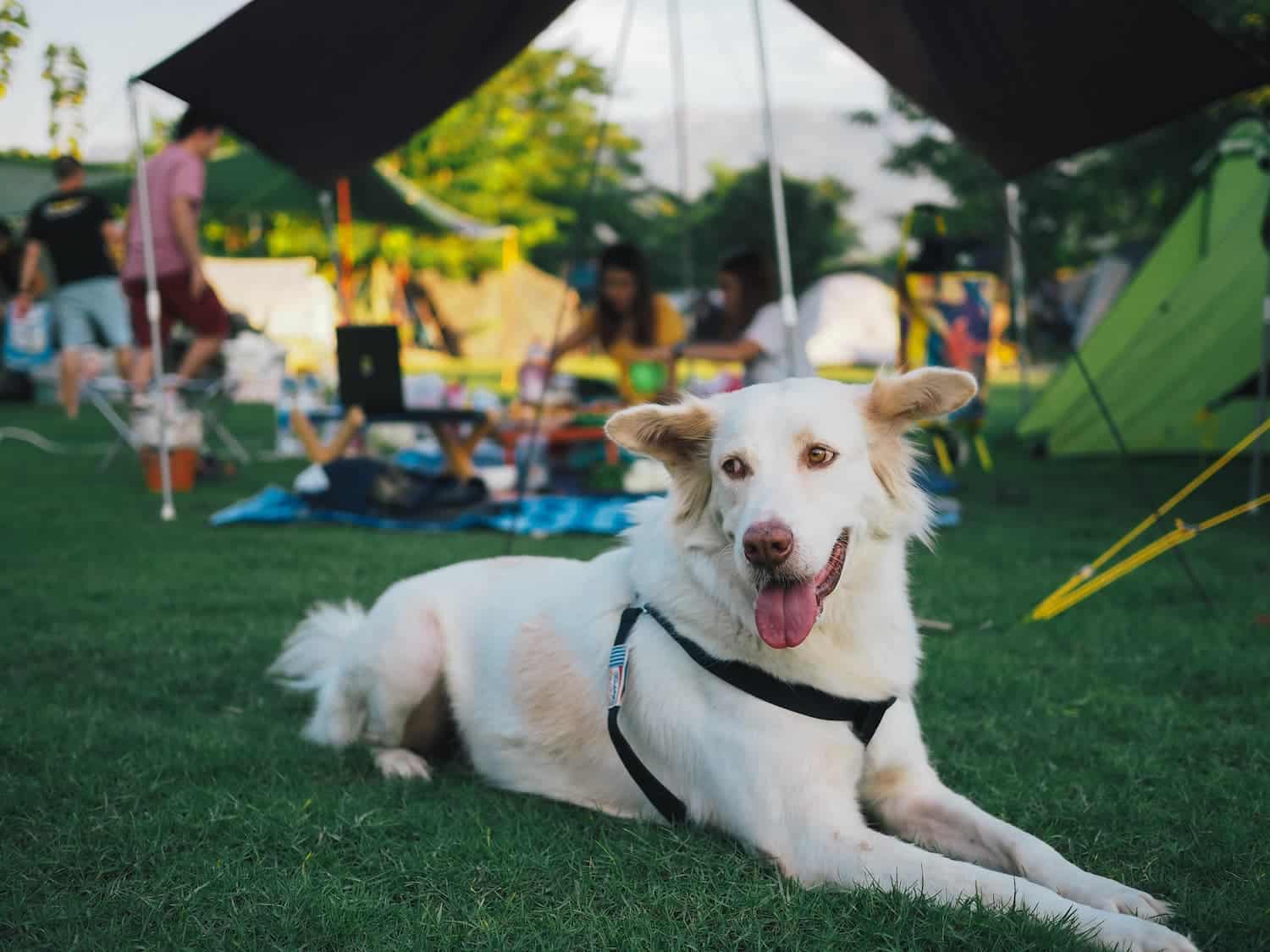
Heat Stroke in Pets: What You Need to Know to Keep Them Safe This Summer
Summer in Volusia County means long beach days, bright sunshine, and warm evenings—but while we humans can reach for cold drinks and head indoors when it gets too hot, our pets don’t have the same options. Dogs and cats are especially vulnerable to heat-related illnesses, and in Florida’s humid climate, heat stroke can set in faster than many pet parents realize.
Knowing how to prevent heat stroke—and what to do if it happens—can make all the difference. Whether you’re headed to the dog park in Daytona Beach or simply letting your pet lounge in the backyard, these tips will help you keep them safe, comfortable, and out of danger.
Why Summer Heat Is More Dangerous for Pets Than You Might Think
Unlike humans, pets don’t sweat to cool down. Dogs primarily regulate heat through panting, while cats may groom themselves more to stay cool. But in hot, humid weather, these cooling mechanisms can quickly become overwhelmed.
Some pets face even higher risks. Flat-faced breeds like bulldogs, pugs, and Persian cats struggle more with breathing and heat regulation. Older pets, overweight animals, and those with heart or respiratory conditions also face increased danger in high temperatures.
Even short outdoor time can cause overheating—especially on hot pavement or in direct sun. That’s why prevention is the best approach.
Smart and Simple Ways to Prevent Heat Stroke in Pets
When it comes to keeping your pet safe in the summer, a few daily habits go a long way. These easy, effective strategies are your pet’s best defense against heat stroke:
🌅 Time Walks Wisely
Stick to early morning or late evening walks when temperatures are cooler. Midday sun can be intense, and asphalt can burn sensitive paw pads.
💧 Keep Water Available at All Times
Hydration is important. Make sure pets have access to clean, cool water indoors and outdoors. Consider carrying a portable water bottle and bowl on walks.
🌳 Provide Shade Outdoors
If your pet spends any time outside, ensure there’s shade from trees, umbrellas, or covered patios. Don’t just count on a doghouse; they can actually trap heat rather than blocking it.
🚫 Avoid Hot Pavement
Test the ground with your hand—if it’s too hot for you, it’s too hot for your pet. Walk in grassy areas when possible.
🆒 Use Cooling Gear
Cooling vests, mats, and bandanas made for pets can help regulate their body temperature. Even placing a damp towel on the ground can provide some relief.
🐾 Skip Heavy Exercise on Hot Days
Even energetic dogs need rest when it’s hot. Keep playtime short and bring them inside to cool off regularly.
🚗 Never Leave Pets in a Parked Car—Even Briefly
This is one of the most common and dangerous mistakes. Temperatures inside a parked car can rise over 100°F within minutes, even with windows cracked.
Know the Signs: How to Spot Heat Stroke Early
The sooner you recognize overheating symptoms in pets, the better their chances of recovery. Heat stroke progresses rapidly and requires urgent care.
🚨 Common Signs of Pet Heatstroke Include:
- Heavy or excessive panting
- Bright red or pale gums
- Drooling or foaming at the mouth
- Vomiting or diarrhea
- Weakness or stumbling
- Glassy eyes or confusion
- Collapse or unconsciousness
If your pet shows even mild symptoms, take action immediately. Heat stroke can cause organ failure and be fatal if not treated quickly.
What to Do If You Think Your Pet Has Heat Stroke
If you suspect your pet is overheating:
- Move them to a shaded, cool area right away.
- Offer small amounts of cool (not ice-cold) water.
- Wet their paws, ears, and belly with cool water or use damp towels.
- Do NOT immerse your pet in ice water or apply ice packs—that can cause shock.
- Seek emergency veterinary care immediately.
Fast treatment can be life-saving. Heat stroke affects internal organs and can’t always be treated at home. Our team at Animal Emergency Hospital Volusia is available 24/7 to provide urgent care when every second counts.
Local Risks: Florida’s Climate Adds to the Danger
In Volusia County, high humidity increases the danger of heat stroke because it makes it harder for pets to cool themselves through panting. Even on days that don’t feel “extreme” to humans, the combination of heat and humidity can quickly overwhelm a pet’s body.
Pet owners in Ormond Beach and surrounding areas should be extra cautious during the summer months. Keep outdoor activities short, check the heat index, and always err on the side of caution.
What Emergency Vets Want You to Know
Heat stroke is 100% preventable—but once it sets in, professional medical care is important. Our emergency care team at Animal Emergency Hospital Volusia treats heat stroke cases every summer and stresses the importance of early intervention. Here’s what we recommend:
- Don’t wait until symptoms worsen—if your pet seems “off” in the heat, it’s better to be safe and get them checked.
- Act quickly to cool your pet while on the way to the clinic.
- Save our clinic’s phone number in your contacts so you’re not scrambling during an emergency.
Animal Emergency Hospital Volusia provides 24-hour emergency vet care in Ormond Beach, with specialized equipment and experienced staff ready to treat heat-related illnesses and more.
Summer Safety Checklist: Keep Your Pet Cool and Safe
Here’s a quick list to help keep your pet out of danger this season:
✅ Walk during cooler hours (before 9 a.m. or after 7 p.m.)
✅ Avoid hot sidewalks and pavement
✅ Provide shade and water at all times
✅ Never leave your pet in a parked car
✅ Use pet-safe cooling products
✅ Keep outdoor time short on humid days
✅ Learn the signs of heat stroke
✅ Know where to go in an emergency
Make Summer Safe for Your Best Friend
Your pet depends on you to keep them safe—and that’s especially true during the hottest months of the year. With a few simple precautions, you can prevent heat stroke and make sure your dog or cat enjoys the summer as much as you do.
If your pet ever shows signs of overheating, don’t wait. Bring them to Animal Emergency Hospital Volusia for fast, expert care. Our clinic is open 24/7 and ready to help whenever you need us most. Have our number saved just in case: (386) 252-0206.



